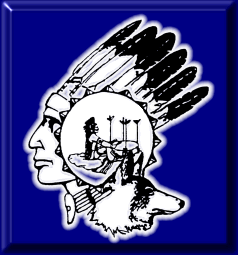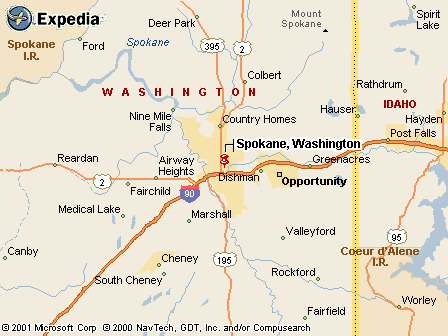|
|
Canku Ota |
|
|
(Many Paths) |
||
|
An Online Newsletter Celebrating Native America |
||
|
August 24, 2002 - Issue 68 |
||
|
|
||
|
Spokane Tribal Leader Turned His Dreams Into Reality |
||
|
by Jonathan Martin Staff writer
Spokesman Review
|
||
|
|
 This
was Robert Sherwood's dream: Spokane Indian children twirling through
their dances, speaking their language, in a cultural center built to preserve
their history. This
was Robert Sherwood's dream: Spokane Indian children twirling through
their dances, speaking their language, in a cultural center built to preserve
their history.
He accomplished much of it, before dying Saturday, August 17, at 71. As the tribe's most diligent cultural preservationist, Sherwood led efforts to record and pass on a dialect of Salish spoken by the Spokanes. He doggedly organized drumming, dancing and singing sessions, including the yearly Friendship Dances. He was one of the few who still remembered Salish names of springs, trails, lakes and hills on the tribe's ancestral lands, said lifelong friend Jim Wynne. He was also a living genealogy record. "He was probably the last true believer in the Spokane tradition," Wynne said. "He preached it, he talked it, he lived it. He took it with him. Now we have to replace it." Sherwood was also one of the tribe's most effective liaisons with the outside world. Washington Water Power, now called Avista, respected his insight so much that the company nominated him for a prestigious Governor's Heritage Award, which he won in 1996. He served 10 years on the Museum of Arts and Culture's American Indian Advisory Board, helping curators understand artifacts' significance. "One adviser told me, when you go up to the reservation, to the powwows, to the gatherings, watch who people go to," said Lynn Pankonin, curator of the museum's American Indian Collection. "One of those people was Robert." Richard Bruce kept his phone near while watching the Seattle Mariners, expecting his friend to call to talk about the game. Bruce feared the worst when Sherwood didn't call after a good play recently. "Robert was amazing," said Bruce, a tribal member who lives in Spokane. "He could just keep things on his mind. We'd be on a road trip, and he'd just start telling history of the different areas. It was like hanging around with a history book." Sherwood grew up on the Spokane Reservation, earning a reputation for being outgoing and giving. He was married 48 years to Helen Sherwood, and together they had eight children, 10 grandchildren and 17 great-grandchildren. Four of his boys died earlier. Sherwood's health had gradually faded after a 1991 heart attack, and six subsequent surgeries. Yet Sherwood still served as the tribe's cultural director, overseeing archaeological digs, seeking repatriation of remains from museums and teaching Salish. He quit as cultural director after becoming frustrated with tribal politics involving a hard-won National Endowment for the Humanities grant to preserve the Salish language. Despite his involvement in winning the grant, it went to another tribal group. He retired in 1991 after working 26 years as an engineering technician for the Bureau of Indian Affairs, surveying roads and making friends on reservations across the Northwest. He helped other local tribes set up Alcoholics Anonymous groups, Wynne said, and used his status as a Korean War veteran to restart a Veterans of Foreign Wars group in Wellpinit. One part of Sherwood's vision that didn't come to fruition was a tribal museum in Wellpinit. Sherwood hoped the $5 million project, first envisioned in 1994, would help the tribe reclaim artifacts scattered among other museums. "We don't want to just drop the ball on it," Bruce said. "It was his dream." The center, Sherwood believed, would also invigorate interest in the tribe's dying language. He and tribal member Henry Wynne were the most fluent; both have been recorded by preservationists from the MAC. Henry Wynne is ill, said Jim Wynne. "We're just about to the end of it, without having to read about it," he said. That would make Sherwood sad, his friends said. At a Friendship Dance in 1997, he addressed the young dancers: "Why don't the young people pick these up?" he said. "Why don't they follow the traditions of their people?"
|
||||
|
|
||
|
|
||
| Canku Ota is a free Newsletter celebrating Native America, its traditions and accomplishments . We do not provide subscriber or visitor names to anyone. Some articles presented in Canku Ota may contain copyright material. We have received appropriate permissions for republishing any articles. Material appearing here is distributed without profit or monetary gain to those who have expressed an interest. This is in accordance with Title 17 U.S.C. section 107. | ||
|
Canku Ota is a copyright © 2000, 2001, 2002 of Vicki Lockard and Paul Barry. |
||
 |
 |
|
|
The "Canku Ota - A Newsletter Celebrating Native America" web site and its design is the |
||
|
Copyright © 1999, 2000, 2001, 2002 of Paul C. Barry. |
||
|
All Rights Reserved. |
||
